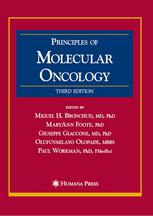

Most ebook files are in PDF format, so you can easily read them using various software such as Foxit Reader or directly on the Google Chrome browser.
Some ebook files are released by publishers in other formats such as .awz, .mobi, .epub, .fb2, etc. You may need to install specific software to read these formats on mobile/PC, such as Calibre.
Please read the tutorial at this link: https://ebookbell.com/faq
We offer FREE conversion to the popular formats you request; however, this may take some time. Therefore, right after payment, please email us, and we will try to provide the service as quickly as possible.
For some exceptional file formats or broken links (if any), please refrain from opening any disputes. Instead, email us first, and we will try to assist within a maximum of 6 hours.
EbookBell Team

5.0
30 reviewsDrawing on years of significant scientific advances and clinical developments, the editors of POMO III have thoroughly updated the highly praised first and second editions and added new chapters to reflect the knowledge emerging from research on genomics, proteomics, chemoprevention strategies, pharmacogenomics, new molecular targets, therapeutic monoclonal antibodies, and innovative cytotoxic and cytostatic small molecular-weight molecules. The first edition of this book (Humana Press, 2000) was also the first comprehensive presentation of the concept of cancer as a "disease process" involving key regulatory pathways. The second edition (2004) reaffirmed this dynamic concept, incorporating more recent evidence, and introducing such new topics of special interest as the combination of molecular diagnostics-expression profiling of genes and proteins- with developmental therapeutics, and the "binary state" concept (active/inactive) that seeks more relevant targets within the global molecular matrix of a given cancer. Comprehensive and intellectually stimulating, POMO III not only clearly elucidates the fundamentals of this dramatically advancing field, but also interprets the vast and often complex molecular data available. It fills a much neglected gap between "information" and "knowledge," and holds out the hope of new anticancer strategies that will reduce the process of carcinogenesis, cancer cell proliferation and significantly reduce metastasis.